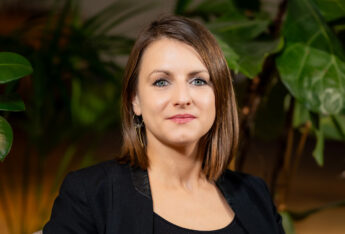GSG Impact has submitted a proposal to the UN, backed by more than 50 organisations, to mobilise private capital to the SDGs ahead of the 4th International Conference on Financing for Development taking place next year.

GSG Impact has submitted a proposal to the United Nations to mobilise private capital towards the Sustainable Development Goals (SDGs), ahead of the 4th International Conference on Financing for Development (FfD4), which takes place in Seville next summer. GSG Impact said the conference was possibly the last opportunity at an international level to get the financial architecture in place to help achieve the SDGs by 2030.
FfD4 aims to address the urgent need to implement the SDGs and support the reform of the international financial architecture, with the last conference held almost ten years ago in Addis Ababa in Ethiopia. The conference will also assess the progress made in the implementation of the Monterrey Consensus, the Doha Declaration and the Addis Ababa Action Agenda, agreements reached at the three predecessor conferences.
Speaking to Impact Investor, Krisztina Tora, chief market development officer for GSG Impact, said: “The Addis Ababa conference made progress in terms of galvanising development finance for emerging markets but we still have far to go. FfD4 will be extremely important as it falls five years before the 2030 deadline to achieve the sustainable development goals at a time when only 16% of SDG targets are on track and the financing gap remains huge.”
Substantial support
Tora said the conference, which is organised by United Nations Department of Economic and Social Affairs, would mostly focus on development finance for low- and middle- income countries.
GSG Impact’s paper includes contributions and has the backing of more than 50 organisations from 45 countries, including GSG Impact’s national partners and regional and global organisations such as 2X Global, the global industry body promoting gender lens investing, the African Venture Philanthropy Alliance, Impact Europe and Latimpacto.
“Many organisations have submitted papers. Our paper, which has the support of impact-driven organisations from across the globe, explains what we want to see happen and what we would recommend to mobilise capital where it will have the greatest impact,” said Tora.
Tora explained the preparations taking place ahead of the conference were akin to the G20 process, where much of the work is done through meetings and negotiations ahead of the event, where final agreements and declarations are made.

“This is why our submission, which adds the voice of impact to discussions is so important as it could influence decisions made next year,” she said, adding that she hoped that the decisions made at FfD4 will be transformational and influence financing and the speed of change for other internationally agreed targets such as those agreed at the UN’s COP conferences around climate change and biodiversity.
“If systemic changes are set in motion, such as new ways to restructure and reduce the burden of debt on emerging market countries or to reform the global economic governance, then they can really enable all of the rest,” she added.
Recommendations
GSG Impact’s proposal contains several key messages and three recommendations and calls to action for governments and FfD4 stakeholders. These include the need for greater support for and investment in locally-led domestic initiatives, and the expansion of de-risking tools such as the establishment of flexible catalytic capital facilities able to operate with scale in diverse geographies to attract private capital.
The third recommendation concerns the fostering of greater impact transparency through regulation that mandates sustainability disclosures by both public and private entities, and the replacement of GDP as a sole measure of performance by incorporating and prioritising notions of wellbeing and impact goals such as the SDGs into public sector accounting and reporting.
“It can be boiled down to two essential things. One is the need to move away from GDP as a measure of success,” said Tora. “We really need to do much better, especially from a government perspective, at setting targets around wellbeing, measuring progress for the good of society and the environment and progressing towards full impact transparency for companies. The second, is around, how we can better support what is happening on the ground in local ecosystems.”
Tora said there are many great solutions developed and led by local actors but that they are taking too much time to get off the ground because the majority of development finance was still captured by a small number of players.
“If we were to focus much more, for example, on the solutions that are developed by our national partners that are both scalable and at scale, such as the development of impact investment wholesalers or fund of funds, that could be really transformational,” said Tora.
“These solutions are cost effective, they are developed by and for the local ecosystems with the knowledge of what is missing and what works, and can also importantly, mobilise local, domestic capital which addresses the much talked about issue of currency risk,” she added.






